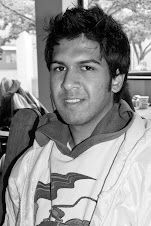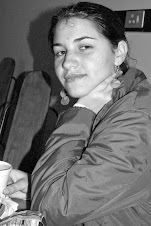By: Jessica Blase
Global warming and the melting of the ice caps seem like they’ll never affect us, but we could be facing problems of our own. The Makana district which covers Grahamstown, Alicedale and other surrounding areas has a substantial amount of its own environmental problems. Parts of our town are scattered with litter, and there is illegal dumping on street corners and in our rivers. Waste is a major issue as it not being properly regulated as while parts of Grahamstown remain spotless, other parts are left to suffer. There is also grave concern by many residents over access to fresh water as well as the water quality in Grahamstown.
But whose responsibility is it to make sure these problems are eradicated. Most people would argue the Makana Municipality! Well this was what I believed. Placing the blame on the municipality is something we all do quite easily, especially when it comes to the issue of waste and litter in Grahamstown. In a recent interview with Johan Esterhuizen, Assistant Director of Environmental Health and Cleansing, one of the only informed people within the municipality on such issues, this perception of mine was changed. I went in with a strong mind, hoping to address this man with the unacceptable issues of illegal dumping and pollution in some areas of Grahamstown. I came out being awoken to a few explanations from the other side.
Where does Makana’s environmental action start? Well in 2005 Makana set up LEAP (Local Environmental Action Plan) which is at first glance an impressive project, its aim being “towards a vision for the environment of Makana”. After consultation, planning and reviews, the LEAP is now in the implementation phase, well it is at least supposed to be. Don’t feel embarrassed if you have not heard of the project as many residents have not- this being one of its many problems. Even though LEAP is a step in the right direction in local environmental conservation the problem is in the implementation as much of the policy seems to remain just that-policy. ‘It’s just a thick document with ideas, but we need funding for all these things to really happen”, says Esterhuizen.
Even though these plans are often not put into action, Esterhuizen argues that some of the responsibility should fall to the people. “It’s not the municipality’s fault that the streets are dirty, it’s you and me who are the problem”, he says. According to Esterhuizen the municipality has two roles. Firstly they must collect domestic refuse, and secondly that council should provide an area for citizens to dispose of larger waste. This he says is being done, and anything above and beyond this is extra work for them. The litter we see on the road, or the large illegal dump sites was put there by the people, was caused by the people, and they should try taking some responsibility for it.
As much as this is a valid argument, what Esterhuizen is forgetting is the fact that people hardly have the means to get to these designated spots. There is also the problem that people have not been educated as to what illegal dumping is, as well as what the health and safety risks are to this. A recent occurrence opened my mind to the discrepancy in the hierarchy of needs here in Grahamstown. In my efforts to find out about the publics environmental concerns, I spoke to a number of people at Checkers . “What are your greatest environmental concerns”, I ask. The stunned, slightly confused face stares at me and shakes her head before turning around. I try again, “Do you have any problems with your electricity or waste? We are trying to show the municipality your concerns!”, I say. A few seconds pass but this time she responds, “I don’t have electricity mam”. “Oh”, I say, slightly blushing, and ashamed of my naive assumptions.
There are people living in Grahamstown who have greater issues than water quality, because for them fresh water would be a luxury. It really makes you think, that those of us who have the ability and the knowledge to do something about this, really should. There is a dire need for education, both in the hands of the municipality staff and the local public. Yes we can continue blaming the municipality and they can continue blaming us but the reality is that nothing will change. As much as people have the right to a healthy environment, alongside this comes the personal responsibility to keep it clean. Those of us with the ability and the education to do so, should.
Subscribe to:
Post Comments (Atom)





No comments:
Post a Comment